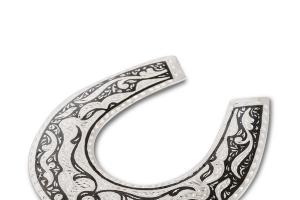Why does the baby move so much
The baby pushes hard in the stomach - during pregnancy, many women worry for this reason. But no less than expectant mothers, who, on the contrary, are frightened by the lack of movement in the womb. Both of them are interested in how the child should move normally? But the body of each pregnant woman is individual, and advice from the outside is not always applicable to a particular situation.
Usually the first movements are felt in the period from 18 to 22 weeks. Hardly perceptible movements, over time, are replaced by active, strong shocks. Why does the baby move unusually strongly in the womb? Several factors influence the intensity of perturbations.
1. Pregnancy period. The term increases - the baby grows, gets stronger and becomes stronger. That is why light shocks over long periods turn into very sensitive “kicks”. From 24 to 32 weeks - a period of rapid growth of the child, it is at this time that the movement inside is especially noticeable. The number of movements decreases by the time of childbirth, but the strength does not stop growing.
2. Nutrition. If the child is actively moving, then he may not have enough oxygen or nutrition. Relative signs of this can be seen on ultrasound. This is the premature maturation of the placenta, for example.
3. External factors. An intensive reaction of the baby occurs to external influences. Examples of external stimuli are: the voice of a father or mother, loud music, the sound in the subway, a car signal, or just someone's hand on the child's "house".
4. Mode. The wakefulness of the crumbs in the mother's stomach does not always occur, it has an individual regimen. Sleep occupies most of the time, on average, he sleeps for 3 hours, followed by a short break. The strength of the pushes is influenced by the temperament or mood of the baby.
5. Mom's emotions. An active reaction to the mother's mood begins at about the 25th week of pregnancy. Bad mood often causes active movements of the child, but some children, on the contrary, calm down and wait for the “atmosphere” to change. A long stay in one position, for example, at a computer, can provoke the baby to move, which will sound like a call to change the type of activity, the so-called request to move is a common reason why the child pushes hard in the mother’s stomach.
Certain moments call for vigilance. Starting from the 25th week, the baby should move about 10 times per hour. But he may not move at all for 3 hours, as this is a normal time for uninterrupted sleep. With regular movements of the fetus, mommy should not worry. The reason to be wary is if the child pushes hard in the stomach for a long time, without interruption. This may portend hypoxia - a lack of oxygen. Acute oxygen deficiency can be diagnosed by a doctor by listening to the heart sounds of the fetus, as well as by prescribing a special ultrasound. The main task for hypoxia is to improve the nutrition of the baby. You may need hospitalization. But do not worry ahead of time. Many moms have increased vigilance and panic with or without reason. With the passivity of the fetus, it is recommended to eat something sweet and do gymnastics. If the baby answered - everything is in order, otherwise you should repeat the same thing after 2-3 hours, perhaps he is just sleeping.
The child is actively moving in the stomach - is it good or bad? Should this be considered a feature of the baby's temperament or a sign of some kind of pathology? Let's discuss.
Pregnancy is the most exciting time in any woman's life. But along with pleasant emotions, many fears and questions often arise. Expectant mothers are concerned about how the baby feels in the womb, and too active turns and pushes can be a cause for great concern.
How actively should the child move on different terms pregnancy? On average, a woman begins to feel the movements of the fetus, starting from the 20th week of pregnancy. After 24 weeks, the movements become stronger, and by the end of pregnancy, the baby's activity decreases.
You can name the following reasons why the child is actively moving in the mother's tummy.
1. Reaction to external factors. With active movements, the baby can show his dissatisfaction with his mother's posture, loud sounds and music, bright light directed at the stomach. Try to change the position of the body, dim too bright lights or turn down the music, and the baby will calm down.
2. Mom's mood. Your baby's restless movements may be a reaction to your anxiety, worry, or fear. Try to be less nervous so that the baby does not worry with you.
3. A certain period of pregnancy. From 24 to 32 weeks, the child's activity is periodic. This is due to its rapid growth, development and desire to learn about the world around it, which is still limited by the walls of the uterus.
4. Daily routine. Sometimes the baby pushes hard in the mother's stomach. After all, he lives according to his own particular regime. Active shocks are noted during wakefulness, and a lull during sleep, which lasts about 3 hours in a row.
5. Hiccups. Sometimes the frequent movements of the baby can be confused with hiccups, which occurs during pregnancy due to swallowing by the baby. amniotic fluid. Hiccups are an absolutely normal, periodically occurring phenomenon. It should not be a cause for concern about the health of the crumbs.
After 24 weeks of pregnancy, the norm is 10-15 movements per hour (excluding sleep time).
Sometimes it pays to be extra vigilant. For example, if the nature of the child's movements has changed, they have become stronger and more intense, the baby is actively moving without a break for sleep. This may be a sign of a lack of oxygen, that is, hypoxia. In this case, you should definitely consult a doctor who will prescribe cardiotocography (a method for calculating the heart rate and fetal movements per hour) or dopplerography, which is performed using a special ultrasound machine. Upon receipt of indirect evidence of fetal hypoxia, the doctor will most likely advise hospitalization and prescribe treatment to improve the condition and health of the crumbs. But it is more dangerous if the child does not actively move, this almost always indicates oxygen deficiency and intrauterine growth retardation.
Before contractions, the baby usually calms down inside, the movements become rare and less intense. Therefore, they say that childbirth is approaching if the child stops moving a lot. When at 40 weeks the baby is actively moving, this is rather an exception to the rule, since there is very little space in the uterus for the baby. The kid will rather roll over, straighten his legs and arms, but, for example, he will not be able to roll over.
Active fetal movement before childbirth can sometimes indicate oxygen starvation, some kind of discomfort. Try to take a walk in the fresh air, and then listen to the behavior of the crumbs. If active movements have not stopped, then it would be advisable to visit a doctor just in case, since hypoxia is dangerous at any time.
During the normal course of pregnancy, the movements of the baby at week 30 are no longer as noticeable as in earlier periods. All this is due to the fact that at this time the fetus is already quite large and the baby is already getting crowded. Mom, of course, will feel stirring, but there will be no more pushes and “kicks”.
Fetal movements at 30 weeks are very smooth
When the fetus moves at 30 weeks, the mother can already feel not only the handle or the leg, but also the fingers (but this is of course not in all cases). For clarity, a small comparison can be made. So: most mothers feel the first movements at 12 weeks, at 15-16 weeks they are already clearly felt, from 17 to 25 mothers it seems that babies are playing football in the tummy. 30 weeks of pregnancy, fetal movements are not so pronounced. After 30 and before the birth of the baby, the movements are very slight, constrained.
If everything happens according to these periods, then the pregnancy is proceeding correctly. 30 weeks, movements, when they are almost imperceptible, when the woman has already entered maternity leave(doctors recommend that it is at this time to finish their work) mothers can already afford to pay maximum attention to their pregnancy. At this time, the child has already formed limbs, the mother can clearly feel where the baby has arms, legs or head. The fingers and toes are also formed.
The child during this period of his life clearly feels the light, and reacts to it, which is why it is very important correct routine day for mom. When the time of day is dark, the child will fall asleep easier in the womb than in the light. During this period, children's hearing is especially formed, so it's time to teach the child to the beautiful. You can start reading children's fairy tales aloud, the child will hear.
In order for at least partial understanding to occur, it is necessary to read with expression and it is desirable to change voices (for example, a bunny speaks in a more pleasant thin voice, and Gray wolf in a rougher, louder voice), it is better to read slowly, observing punctuation marks. Also, during the formation of hearing, you can listen to classical music, but preferably something light with a predominance of one instrument, Chopin is perfect, it is recommended to listen to multi-instrumental works (when growing up, the child will quickly begin to distinguish the violin from the cello), but not heavy, not minor.
As for charging, it must be done regularly, since for a period of thirty weeks the woman's mobility is already very limited, it is imperative to knead all muscle groups.
Nothing new needs to be added during this period, it is enough just to follow the old scheme, if something becomes difficult, then it is recommended to reduce the number of approaches to the exercise or the number of times. It is worth carefully monitoring the diet during this period.
If at the very beginning of pregnancy, doctors focused on eating meat and poultry, as the skeletal system is being formed, then in the third trimester, along with meat and poultry, you need to increase the amount of fruit and fiber in the diet. The brain and bone marrow are formed and actively develop in the child, and to improve the functioning of the brain, both adults and children are recommended to eat dates, peanuts, walnuts and cashews. Also, do not forget about fermented milk products, yogurt, cereals, cottage cheese. Even if a woman does not like these foods, it is necessary to eat them at least a few times a week.
A woman in this period of pregnancy feels much better than in the first trimester, when the main surprises were toxicosis and a great desire to eat either cucumbers or ice cream or fish. In the last trimester, a woman enjoys pregnancy more than ever, because at this time nothing but the joy of motherhood should worry her. At this time, the woman begins to prepare for childbirth and the first months of motherhood. Worth a stroll through the shops and look at goods for children.
Recently, there are a lot of such stores, even if they have not caught my eye before. There are huge stores, such as "Children's World" in such stores you can find everything from bonnets, diapers, vests, and to everything that a child may need at the beginning of his life. There you can also look at beautiful cradles or cradles, playpens for a child - as practice shows, this is very necessary thing, even if at first it was not planned to purchase it.
Also during this period, many experts recommend that young mothers take special courses, not those that are required to attend, but paid ones - they are very inexpensive, and women will be told a lot of useful things about raising a baby, about proper feeding how to put to sleep so that the child falls asleep faster. How to develop the personality of a child even before his birth (just from the period of thirty weeks, from the very beginning of the third trimester). Also, such courses will help to prepare psychologically for the birth itself - this will be very useful for young nulliparous women.
As mentioned above, the child's brain is actively developing at this time, so it is extremely important to avoid stress during this period of the baby's life. The slightest stress of the mother can negatively affect the mental health of the baby. Therefore, it is necessary during this period to live in maximum comfort and harmony with oneself.
Physical activity is not recommended during this period. Of course, in principle, during pregnancy, you should not pull weights, but as for weeks 3-5, as well as 29-33, you need to be extremely careful. Attentive attitude to pregnancy is a guarantee of the birth of a healthy baby.
When the baby begins to move in the mother's tummy, this is a very important moment. For all expectant mothers, this topic is very much in demand. After all, every time you worry about whether the baby started kicking and whether he is active enough. To dispel all feelings, it is worth dotting all the “and”. I would just like to stipulate right away that every woman has her own physiology, and there are no strict norms in this matter.
When, at how many months does the child start kicking in the first and second pregnancy?
This period cannot even be compared with anything. It is at the moment when the child pushed the tummy for the first time that you fly up to seventh heaven with happiness. And then you begin to realize what is inside you new life. Yes, believe me, many (especially young mothers) do not immediately understand all the responsibility and in general what is happening to them. And up to five months, for most, the tummy can be barely noticeable.
When it happens:
- Let's just say that the baby is alive and moves all the time he is in the tummy. This is natural and normal. The fact is that in the early stages the baby is so tiny that any of his tremors are not felt. Yes, and he is behind so many protective layers (meaning the placenta, uterus and amniotic fluid). And he does not reach the walls of the uterus itself.
- The baby is growing up and already the movement of the leg towards the mother's tummy becomes noticeable. This happens on average 20 weeks during the first pregnancy.
- During the second and subsequent pregnancies, this important moment will come a little earlier - on 18 weeks.
- But! It happens that the mother begins to feel the baby's movements as early as 16 or even 15 weeks of pregnancy. And there are times when a child starts kicking only at 24-25 weeks. Neither in the first nor in the second case is it necessary to worry (pregnant women should not be nervous at all). Better rejoice in every minute of your special position.
So that there are no questions without answers, let's take a closer look at this nuance. Why do babies kick at such different times and what is the norm:
- The first reason is a weak perceptibility and, perhaps, not even a realization that this happened. After all, the baby pushes very weakly in the first stages. Here we will immediately answer why during the first pregnancy this happens a little later. For the second time future mom knows all sensations and how they should be.
- An important role is played by the weight of the fetus. Yes, you will feel the leg of a larger baby faster.
- Also, the weight of the expectant mother makes its own adjustments. Slender girls will quickly feel when the baby starts kicking. And those who have a thicker subcutaneous fat layer will naturally feel a stir a little later.
- And, of course, the threshold of sensitivity. Every woman has her own. Therefore, this is such an individual issue that doctors put such a long period within the normal range. But, of course, no later than 25 weeks. Otherwise, you should definitely consult with your doctor.
- And also, the activity of the intestines of a young mother affects. Sometimes because of it elevated work may obscure fetal movement.
- Also, the temperament, character and mode of the future baby are already manifesting.
- Quantity amniotic fluid also contributes. The more of them, the sensations will not be so expressive. And with their small number, of course, the opposite is true.
- Also, the location of the placenta plays a role. Those in whom it is adjacent to the back wall of the uterus will feel the movements of the fetus a little earlier.
- And, of course, the state of health of the crumbs is related. I think there is no need to delve into this topic in detail.
- By the way, the fact that the child is desired also has a great influence. As a rule, mothers feel the shocks of planned and long-awaited children faster.
How a baby kicks in the stomach: sensations
Words cannot express such feelings, they need to be felt. Any mother will say, especially to her still unmarried friend (who should have her own children). Yes, it's a really nice feeling. But, rather, not physically, but spiritually.
The sensations of how a baby kicks will change as it grows. And this is natural:
- In the very first terms, somewhere before the 15th week, it was already stipulated above that the movements were simply not noticeable. Rumbling in the stomach gives more signals. There are cases when mothers claim that they hear the baby (especially young ones who want to feel it for themselves as soon as possible). Sometimes, indeed, early term you can faintly notice his movements, but they are often confused with normal bowel activity. Especially considering the fact that pregnant women have increased gas production.
- After 15 weeks sensations are already more noticeable and understandable. That is why most mothers begin to feel how the baby is kicking. Each mother, of course, may be different. But on average, the tremors are pleasant, barely noticeable, resembling a kind of gurgling. Some compare it to fluttering or even the touch of a feather. But over time, this feather will show which bird sits in mom's tummy.
- Already after 20 weeks, the movements become apparent. You can catch some of his movements. By the way, he can still turn and somersault. Therefore, it is still difficult to understand whether he kicked with his hand or foot. The sensations are a bit like swimming fish. She splashes in the water, and her movements are even pleasant. Movement becomes like a push. For example, he could touch with his foot. But they are very soft and light. By the way, during this period, the baby can hiccup and mom can understand this. These will be rhythmic twitches within yourself. Especially, they will be noticeable in the prone position.


- closer to 24 weeks shocks are no longer confused with anything. Sometimes even kicks or fists can interfere with sleep.
- 25 week are considered the peak of the activity of the baby. He still has room to spare, and he is strong enough for big vigils. On average, there should be at least 10 shocks somewhere per day. By the way, you need to consider that each baby has his own regimen. In the tummy, babies also sleep, which means they are not active. It feels like a real shove.
- TO 28 weeks the child assumes a head-down position. The stop of the leg or the impact of the cam is already becoming noticeable. But, if the child has not yet accepted such a position, then you should not be afraid or worry. He has 8 more weeks left. That is, closer to 36 weeks, the baby will take the correct position.
- As a rule, after 32 weeks, the baby kicks is no longer very pleasant. Often expectant mothers complain that the baby kicks hard in one side or interferes with normal lying. That is, he already points to an uncomfortable position. If the mother lay down incorrectly, then the baby will immediately let you know about it with kicks in the side. And it is worth changing the position, as the child calms down. The leg can already be clearly seen or even felt by hand (when he put it out). Every day the baby is getting closer and closer in his home and his mother clearly feels any of his movements.
Why does the child kick hard and painfully, very often in the stomach?
Mothers are interested in this issue, mainly for more later dates. The baby is still too weak in the early weeks and has enough space not to cause discomfort to the mother. But any changes in your body should be discussed with your doctor. Especially those aspects that cause you inconvenience or anxiety. Let's look at those cases when you need to urgently go to the hospital, and when it is within the normal range.
- The most common reason why a child pushes hard or too actively is that the mother lies uncomfortably. Yes, it is worth rolling over to the other side or changing too long a sitting position, as the baby calms down.
- Also, the baby can express their dissatisfaction. Already at this age, the baby can show his character. Maybe he does not like some external smells or the taste of food. Or maybe mom listens to music too loudly (or just tastes do not match). Naturally, you need to change the situation.
- And it may sound strange, but the baby may not like what the mother does. Especially if the activity takes a long time. For example, a mother sits in an uncomfortable position for a baby for a long time and embroiders or watches TV. Well, you just need to change the type of activity. Or at least just warm up after a long sitting position.


- Everyone knows that a child experiences with her mother all her emotions. Therefore, take a look at yourself. Perhaps you have been a little nervous for several days or have not been sleeping well lately, and the baby feels you are tired. In this case, you should drink tea with chamomile or mint, calm down or fall asleep.
- By the way, in terms of food, you also need to be careful. Sometimes too sour or spicy food can provoke an overly active behavior of the baby.
- While the baby is in his mother's tummy, he perfectly hears everything that happens outside. Listen, maybe the kid is just happy to hear daddy come home after a long day at work.
- But what to do if everything is in order with nutrition, the posture and activity have been changed, everything is in perfect order with the nerves, and the baby will not calm down in any way. You need to inform your doctor as soon as possible. It happens that the baby lacks oxygen. And this problem can only be solved with medication. Most importantly, do not let the question take its course and do not self-medicate.
Why does the child kick in the stomach on one side, in the left, right side, in the lower abdomen?
The time of his pushes can be completely different, as well as the intensity of the kick. Above, we have already figured out what is considered the norm. But most mothers are confused by the fact that the baby pushes only on one side.
- This is more than normal. After all, our arms and legs are on the same side (more precisely, they bend in one direction). That is, you do not feel shocks from the side where the back is located. This is the first plus - it means that the child is all right with development.
- The second plus is that he does not change his position or does it extremely rarely. This means that there is less chance that the baby will decide to turn his head up for childbirth.
- From the left or right side, most likely simply indicates where the child turned. That is, if it kicks in the left side, then the back is in the right side. And even more often and stronger blows are obtained with a leg.


- By the way! There is such a sign - from which side the baby kicks more often. If the main shocks are on the right side, then there will be a boy. If in the left side the baby most often reminds of himself, then this is a girl.
- If the baby kicks in the lower abdomen, then this is not a reason to panic. Yes, the child has turned over and his legs are down. But nothing bad happened. If this happened after 36 weeks, then you should be wary. After all, in the future it will be very difficult for the baby to roll over. Although, there are times when the baby turns over almost before the very birth (this happens with both the right and the wrong position).
How often should the baby push in the stomach?
On this occasion, many expectant mothers, to put it mildly, are worried. There are even mothers who try to stir up the baby by gently pushing the stomach. And there are also such children that even at night they do not allow them to sleep peacefully.
- Just want to note that you do not need to focus too much on this. Believe me, when you start to calculate his pushes, you find only an extra reason to be nervous. No, you don't need to let things go like this. Just listen to your baby's behavior.
- On average, a child should push his mother at least 10 times a day. If the period is short, then the movements, of course, are less. For example, at 20 weeks, there are up to 4 strokes.
- But! This is the average. It happens that someone’s baby is too active and makes much more pushes. And someone has a more passive child and may not reach 10.


- Sometimes it happens that the baby is tired and not too awake today. Naturally, it depends on the mode of the mother. Maybe she walked a lot today or stood for a long time. You need to lie down, relax and let the baby relax.
- It is believed that the 10th stirring should occur before 5 pm. But practice shows that each baby has his own regimen. Some only woke up for night dances or football. And there are those who wake up their mother at 4-5 in the morning, kicking her.
- Therefore, consider your individual regimen (more precisely, your crumbs). Be sure to let your doctor know when your peak activity is. But, if all the indicators and tests are normal, you and the baby feel good, then there is no reason to be nervous.
- An alarming signal will be that the baby moves little and feels pain in the lower abdomen (sharp or aching). This is the reason to immediately go to the hospital.
Does the baby kick before childbirth, during contractions
Often, expectant mothers, especially young ones, do not pay due attention to the movement of the baby before childbirth. And if rapid childbirth happens, then it’s not at all up to it. Perhaps this is due to the unrest that awaits the baby and mother the day before. But often this fact can serve as a signal.
- Immediately before the birth, even before the contractions began, the child stops kicking his mother so actively. It is not always possible to catch this signal. After all, the baby was most active in the evening, and was born in the morning.
- By the way, primiparas are often admitted to the hospital long before important point. And the expectant mother is in anticipation and even slight excitement. This is fine. Therefore, often the movement of the baby is missed.


- If the baby has become not so active or has completely stopped kicking his mother in the side, then contractions will begin soon.
- During the marriage itself, the baby is also preparing for the birth. And the pain is so strong that it is impossible to catch his movements. It’s just not up to the bills, how and how many times the baby pushed with his foot.
- No, the baby is moving. It's just that now his actions are directed in a different direction. After all, he is also involved in the process of childbirth. Therefore, some argue that childbirth should take place without anesthesia. Thus, the mother fully feels the baby.
That is why doctors (or a special apparatus) are connected to check the baby's heartbeat. Especially if the birth is slightly delayed.
Video: How does the baby push in the mother's stomach?








